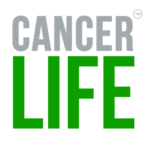The following is a transcription of this video.
So it’s been eight years. Why has it taken cancer life this long, to reach this point? It’s a good question. So the purpose of this blog post is to give you a really quick synopsis of my eight-year journey as founder of CancerLife. What’s ironic is that even after eight years, there’s still no solution embedded in the system that truly manages and essentially improves patients’ quality of life. There’s no competitor. There are a few providers that are trying to improve symptom management. Remote Patient Monitoring finally has billing codes and telemedicine seems to be the norm now, but this does not seem to be scaling very rapidly as standards of care. Why is that?
The issue is that CancerLife is essentially trying to solve a really hard problem, which is symptom management and cancer care today. And the only way to effectively address symptom management is with really good data, right?
Why is Symptom Management so important for cancer outcomes?
There was a study in 2017 by Dr. Basch at Sloan Kettering, where, when patients were emailed a survey once a week, they shared that survey data with their care team for roughly six months. And then they showed an amazing 36% improvement over standard of care and a 50% survival rate, 50% improvement in survival, compared to the standard of care cohort. That’s amazing. That’s kind of been the foundation of everything, but for eight years, the issue is around great data, right?
In this study, patients were emailed once a week and it was something like a 27 or 32 question survey. So, the problem is this is cancer. Patients are exhausted, fatigued, overwhelmed, and to get them, even when they know it’s in their best interest to collect their data, they just don’t do it because they’re exhausted.
Collecting data from Cancer patients is really hard!
And when you’re fatigued and nauseous, why do I want to sit and try to answer 27 questions every week? It’s just it’s too much. So we kind of figured this out that ultimately what patients don’t want is to have to be, you know, don’t, you can’t just throw them in front of a, uh, symptom burden map and ask them to fill it out every week.
It just doesn’t work trying to text them and remind them it’s just going to annoy them. So we had to solve the data collection problem first, and it was only through a lot of trial and error that we figured out that the way to do it and the way cancer life does it is through a social network experience. Just like posting on Instagram, you’re posting your health status with many other patients and getting social support.
Why is Cancerlife Different? How is it solving the problem?
That’s the net benefit to you in the short term. And over time as you interact on the platform, we’re able to build these reports. We had to figure out the data collection platform or problem first, and then we could move on to validating that problem. So where we are today is 2017. We launched our first clinical trial. We identified the fact that patients love the social support aspect. We built-in 2018, this amazing social network that has followers and everything you can do on Facebook to CancerLife can also. Then we had to go through relaunch our study again, and I can announce that just based on our initial phase, two results showed a 25% improvement in quality of life, per participant who went through our trial.
And now today we’re reaching the final milestone, the final pinnacle of clinical validation of a randomized control trial, and actually a vulnerable population.
Cancerlife on the road to a medical device and FDA approved “digital therapeutic.”
We’re going to take cancer life into a vulnerable community. We’re going to try to address, or I feel like we’re going to address the disparities in care and improve the differences between black and white in cancer care. It’s just insulting. It’s 50% worse outcomes for African American, uh, black patients. And we’re going to have to bring cancer life into this center and see if we can’t improve outcomes for this vulnerable population in a randomized control trial. Um, so, you know, eight years, yes, it’s been a long journey, but it’s been an incredibly rewarding one. The people that I’ve met have been incredible, uh, their friends, um, you know, every conference I go to are people I’ve known for years. Um, it’s been great, terribly hard. It’s been filled with rejection, but as the famous stoisist Marcus Arrelus has said, “the obstacle is the way” meaning the journey, the journey you take is, is where you get meaning.
8 Years isn’t really that long when you consider the problem and the people we are helping!
I couldn’t be prouder of where we are today and even after eight years in healthcare, you know, eight years is a drop the bucket. Yeah. I’m in cancer care. And, you know, from a perspective of a new therapeutic, you know, eight years is actually a fast track to a new drug. Now we’re not a drug, but we are going to be a validated therapeutic that improves outcomes for cancer patients. So, anyway, just like to say that eight years may seem like a long time. Still, it’s a drop in the bucket when you consider the important problem we’re solving and raising the quality of life for potentially millions of cancer patients is well worth the, um, the shoes of walking through this amazing journey.
So thank you very much.
